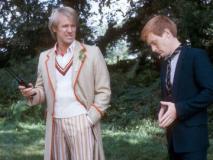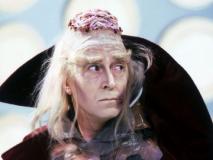An Unearthly Series - The Origins of a TV Legend
Thursday, 10 October 2013 - Reported by Marcus
'

 The twenty-third in our series of features telling the story of the creation of Doctor Who, and the people who made it happen.
The twenty-third in our series of features telling the story of the creation of Doctor Who, and the people who made it happen.Production on the new series was continuing, but the process was not without problems. A version of episode one had been recorded, but was deemed unsuitable for broadcast by the senior managers in the drama department. Changes would have to be made, but the team would be given a second chance.
Any science-fiction series relies heavily on the production's ability to create realistic special effects. A series such as that envisaged by the creators of Doctor Who would need to be able to convince the audience that a whole new universe exists. A universe full of petrified forests and starliners, seas of acid and advanced robots, and all traversed by advanced space-and-time machines. The past would need to be re-created, such as the temples of Tenochtitlan and the prisons of La Conciergerie, as well as a world inhabited by miniature characters.
It would be a tricky task to pull off, even with the might of the BBC operation behind the series. But the feeling in the Doctor Who production office was that various departments were not giving the series the attention it demanded and deserved. One problem had been the work on the TARDIS set, built by Shawcraft rather than the internal BBC Scenic Department. The doors were very unreliable, causing major problems in the recording session the previous week.
The series had still not been commissioned beyond the first four episodes. This was making future planning very difficult, as it was entirely possible that the series would not continue beyond the first story, and so no long-term commitments could be made.
On Thursday 10th October - exactly 50 years ago today - the Head of the Serials Department, Donald Wilson, decided enough was enough. His production team needed some support and the BBC needed to show some confidence in its new sci-fi drama. With this in mind, he sent a lengthy memo to some of the most senior members of BBC management. Included were Controller of Programmes Donald Baverstock, Programme Planner Joanna Spicer, Head of Drama Sydney Newman, and Head of Design Richard Levin.
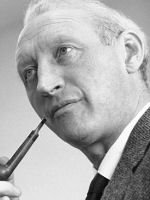
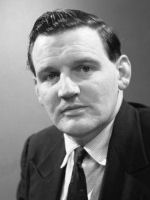
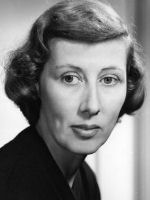
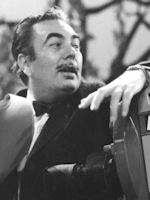
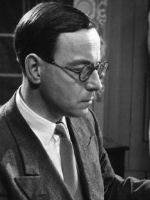
DONALD WILSON
I do not know what 'normal Saturday afternoon series level' may mean, but if it means that the effort required to build the space ship for Dr Who is abnormal, then it seems to me that I should have been told so and I would then have informed everybody that the serials could not be done on those terms and we should therefore have to withdraw the project.
What happened in fact was that a certain amount of effort was brought outside to make it possible for the pilot to be recorded on 27 September. The work was defective and this was one of the reasons why we determined that the pilot episode could be very much improved if it was done again. It was not until the deficiencies appeared that I myself realised that the effort we had asked for was not being provided and could not be provided in the future without a large weekly sum of money over and above the agreed budget
Wilson made a plea for some confirmation that the series would be allowed to continue beyond the initial four episodes, pointing out that if arrangements were not put in order for future stories then the team would be left with four actors on contract and nothing ready for them to perform. I do not know what 'normal Saturday afternoon series level' may mean, but if it means that the effort required to build the space ship for Dr Who is abnormal, then it seems to me that I should have been told so and I would then have informed everybody that the serials could not be done on those terms and we should therefore have to withdraw the project.
What happened in fact was that a certain amount of effort was brought outside to make it possible for the pilot to be recorded on 27 September. The work was defective and this was one of the reasons why we determined that the pilot episode could be very much improved if it was done again. It was not until the deficiencies appeared that I myself realised that the effort we had asked for was not being provided and could not be provided in the future without a large weekly sum of money over and above the agreed budget
If we begin recording weekly on 18 October without a decision being made about the continuation we will be able, given the £800 promised by A.C.(Planning), to complete the first four episodes and the filming of the special effects for the second serial, but if we do not make a decision until after the third recording there will not be time enough to have the design effort and building ready for continuous production after number four. In other words, we would have to cease production for a period of three weeks after the decision is made, during which time we would have to continue paying the four running artists at the rate of £550 a week. We would also be unable to cast the second serial.
To sum up, I think we should commit ourselves to at least eleven episodes on the basis of the existing pilot. (Eighteen episodes would be more satisfactory from the budgeting point of view.) We know that subsequent episodes will be better than this pilot if the effort is available and in view of the changes we have now made in script and characterisation. But in my professional opinion what we have here is something very much better both in content and in production value than we could normally expect for this kind of money and effort.
To sum up, I think we should commit ourselves to at least eleven episodes on the basis of the existing pilot. (Eighteen episodes would be more satisfactory from the budgeting point of view.) We know that subsequent episodes will be better than this pilot if the effort is available and in view of the changes we have now made in script and characterisation. But in my professional opinion what we have here is something very much better both in content and in production value than we could normally expect for this kind of money and effort.
While discussions were going on at the highest levels about the very future of Doctor Who following its first story, production was continuing on that first story, with three days of filming taking place at Ealing. Supervised by production assistant Douglas Camfield, sets had been rigged on the Tuesday, rather later than planned because of transportation difficulties from Television Centre.
Filming took place from Wednesday to Friday to prepare all the insets that would be needed for the final three episodes of The Tribe of Gum. Sequences involving the paoelthic landscape and the fight in episode four were recorded in this session.


SOURCES: The Handbook: The First Doctor – The William Hartnell Years: 1963-1966, David J Howe, Mark Stammers, Stephen James Walker (Doctor Who Books, 1994)




